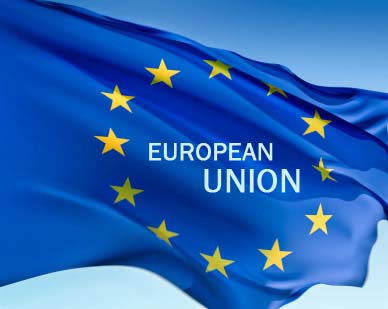EU to continue with twin-track approach on Iran
 Stockholm - The European Union will continue to pursue its carrots-and-sticks policy towards Iran in the hope that Tehran may respond positively to a US-imposed deadline for disclosing details of its controversial nuclear programme, EU foreign ministers said Friday.
Stockholm - The European Union will continue to pursue its carrots-and-sticks policy towards Iran in the hope that Tehran may respond positively to a US-imposed deadline for disclosing details of its controversial nuclear programme, EU foreign ministers said Friday.
"We have a so-called twin-track approach. We'll stick to it," Finnish Foreign Minister Alexander Stubb said on the sidelines of an informal meeting of EU foreign ministers in Stockholm.
Consensus towards the imposition of new sanctions against Iran has grown within the EU ahead of an end-of-the-month deadline set by US President Barack Obama.
"If Iran decides to shake hands with Obama, the nuclear issue hopefully will solve itself ... But if we get no progress in the negotiations on nuclear proliferation, then there will be more sanctions, it is quite clear," Stubb said.
His comments came just days after German Chancellor Angela Merkel spoke out in favour of sanctions, despite her country being one of Iran's biggest trading partner.
"If they are ready to engage with us, we are ready to cooperate with them. If they decide to go for confrontation, then confrontation will happen," said Swedish Foreign Minister Carl Bildt, who was chairing the two-day meeting in Stockholm.
His British counterpart, David Miliband, echoed Bildt's remarks, saying "the offer of the international community is very clear to Iran, it's of respect, commitment to engage."
Miliband also underlined Obama's recent calls for dialogue with Iran but stressed there were also "red lines" which Tehran should not cross.
The EU meeting took place less than two weeks before the 64th session of the United Nations' General Assembly was due to open in New York. Diplomats have said the UN's Security Council will be called to consider fresh sanctions unless Iran cooperates with the international community.
The ministers also heard from EU foreign policy chief Javier Solana, who recently toured the Middle East.
Solana told reporters he hoped for "some new dynamic" in the Middle East peace process in the coming weeks, not least on the sidelines of the upcoming United Nations General Assembly.
Assessing his impressions during a break, Stubb said he "had a sense of optimism" and that there were "positive signs about the peace process getting back on track again."
Miliband said "we are now at an absolutely critical stage in the discussions between the United States, Israel and the Arab countries about how to restart the negotiations," adding that EU ministers would discuss "how Europe can contribute" to peace in the region.
The EU ministers were not scheduled to discuss Afghanistan until Saturday, but a NATO airstrike in northern Afghanistan, which claimed at least 60 lives earlier in the day, served as brutal reminder of the volatile situation in other hotspots around the world.
"The situation (in Afghanistan) is very difficult, and of course we are waiting for the result of the elections. We know that, but we have to win," French Foreign Minister Bernard Kouchner said after learning of the tragedy in Kunduz.
Stubb said it was "a very sad day, a tragic day," adding that the events showed why there was need for "both military crisis management and civilian crisis management."
Bildt planned to brief his counterparts about his visit this week to Afghanistan, where he met with the three presidential contenders.
A discussion paper circulated in advance among the ministers on the EU's role in the region called on more civilian programmes to tackle insecurity in Afghanistan.
"Insecurity in Afghanistan cannot be addressed by military means alone," a draft copy of the text states. dpa